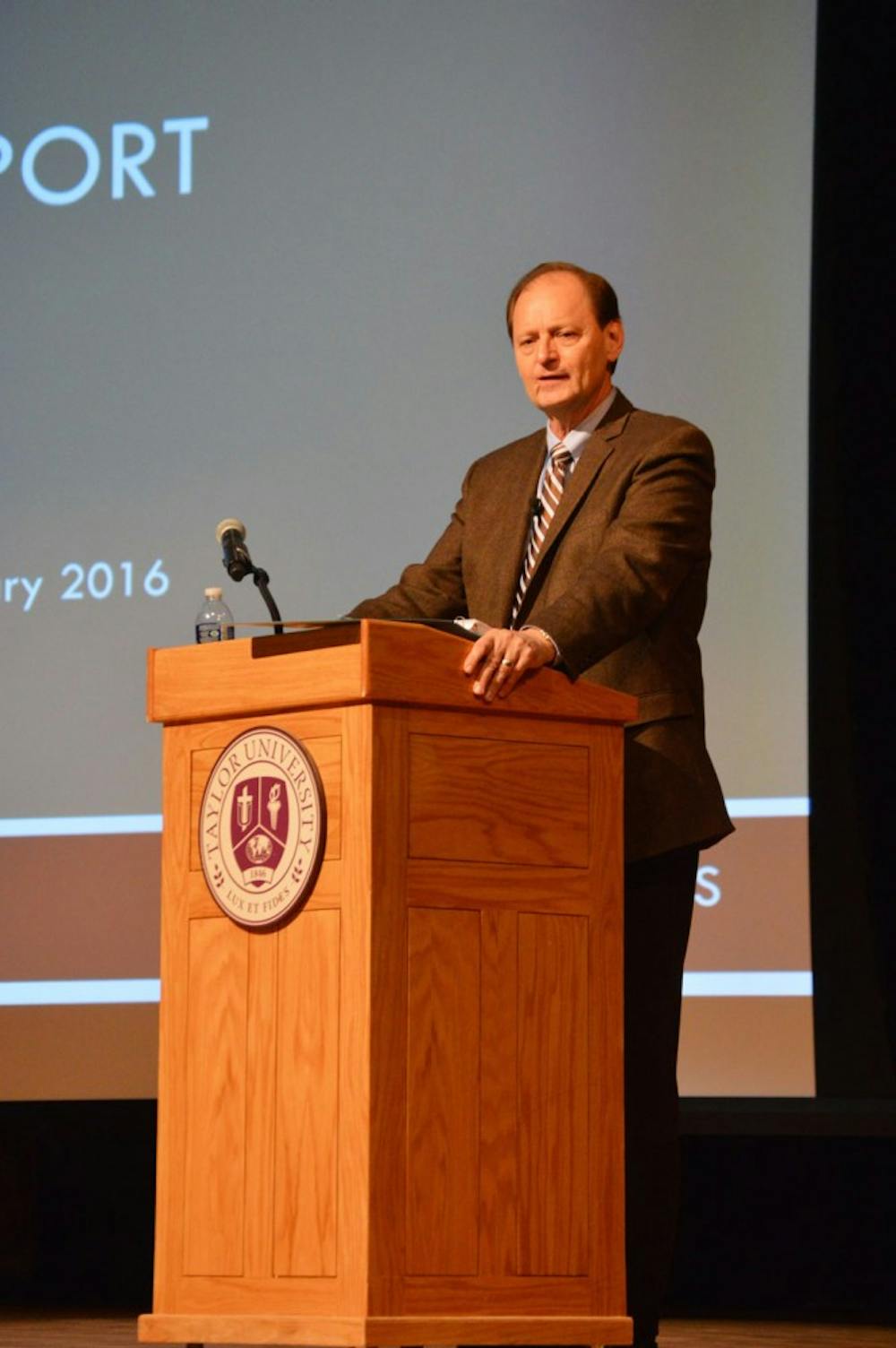By Julia Oller | Echo
Over the past week, a cloud has settled over campus, and its shape closely resembles the letters U, P and R.
Rumors surrounding the University Program Review (UPR) fell like fat raindrops several days before the official unveiling, but the angst only seemed to grow through the resulting rounds of informational meetings and Q-and-A's.
Not a single faculty member I've talked to about the UPR-even those whose departments benefited-have had positive comments about its release. Instead, they seem fearful of the future and unsure whether or not their academic areas will survive should more cuts occur, even though Taylor's administration explained that the UPR is not a crisis control tool.
Last week I spent an hour and 20 minutes grilling Provost Jeff Moshier and Dean of Student Development Skip Trudeau with questions about the UPR. Their transparency impressed me, as did their sense of calm. What did not impress me, however, was their inability to answer several questions relating to significant UPR changes.
In fact, I believe the Taylor administration wasted a valuable opportunity to demonstrate superior communication skills in the way it handled the program review. Regardless of the UPR's content, which I found to be (mostly) reasonable and necessary, I call into question the methods used to disseminate the information.
The UPR has been in process for the past two years, but despite the fact that the information may greatly affect students, the university failed to keep them informed about the proceedings during this time.
While the university scheduled several informational meetings during the week of the UPR release, Taylor didn't directly notify students until the day before their specific meeting, and even then the only information came in the form of an email unenticingly titled "Informational Meeting on University Program Review Results." To draw students to an important event, utilizing PAs or hall directors to promote the event on individual floors would have been a significantly more effective means of communication.
An April 2015 article from Inside Higher Ed-a website dedicated to news about universities-reveals that unsatisfactory communication is a chronic issue at many colleges.
Oftentimes administrators use a different vocabulary than faculty when explaining major changes, which can create frustration when faculty feel that administrators overlook the interpersonal component for the business aspect.
While Taylor administrators reiterated that they care deeply about the ways in which the UPR affects individuals, they have yet to release a plan to guide their people-faculty, staff and students alike-through the confusion and sadness resulting from UPR changes.
One way to remedy this situation, as recommended in a report issued by the American Association of University Professors (AAUP) titled "Faculty Communication with Governing Boards," is to include greater faculty participation on the university's highest governing boards.
To its credit, Taylor gathered together a UPR board of faculty members near the start of UPR planning. Somewhere along the way, though, communication broke down and several gaps, such as the process of removing tenured professors, emerged.
Even if faculty members on governing cabinets don't have a vote, the AAUP suggests including them as liaisons between their professorial colleagues and university officials. No faculty members sit on the Provost's Council or the University Cabinet, but adding one or two faculty to provide a different perspective might help soften the impact of future changes.
Faculty and staff do have a responsibility to decipher the decisions the university makes, as the Inside Higher Ed article clarifies, but they cannot do this alone.
Taylor administrators must help them find the silver linings.





